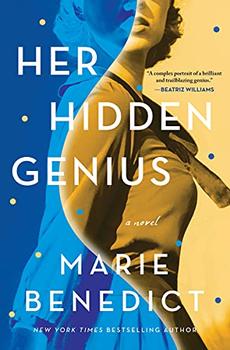Book Club Discussion Questions
Want to participate in our book club? Join BookBrowse and get free books to discuss!
Please be aware that this discussion guide will contain spoilers!
- Before reading Her Hidden Genius, had you heard of Rosalind Franklin? What, if anything, did you know about the history of DNA, and how did the book affect your understanding of that history?
- Compare Rosalind's experiences in France to her experiences in England. What was the biggest difference you noticed between each culture's expectations for scientists and women?
- Rosalind asserts early on that marriage and science are not meant to coexist for working women. Do you think that idea is a product of her time period, or her personality? Does she reevaluate it throughout the book, and if so, how?
- How does Rosalind's Jewish identity shape her behavior and priorities throughout the book? How are she and her family still contending with the events of World War II?
- What did you think of Rosalind's approach to lab safety? How do you think things have changed for modern scientists?
- Jacques pushes Rosalind to be honest with their colleagues about the nature of their relationship. Why does she resist? How would you feel in her position?
- Watson and Crick are not the first colleagues to use Rosalind's work without her permission. Compare Wilkins's use of Rosalind's preliminary data at the Cavendish conference to Watson and Crick's acceptance of credit for discovering the structure of DNA. How much do you think Rosalind knew or understood about the data and images that Watson and Crick used without her knowledge or permission? How does this affect her?
- Collaboration in science is crucial for the most robust discoveries, so how should collaborative projects proceed in a fair fashion, and how should credit be assigned for those discoveries?
- Do you think the so-called gentleman's agreements between heads of institutions that were meant to govern areas of focus in Rosalind's time still exist today, or have they been replaced by more definitive guidance and contracts? Are there still people like Rosalind whose contributions are ignored or attributed to others?
- What do you think is Rosalind Franklin's greatest legacy? Does the author's note make you think more expansively—or differently—about Rosalind's legacy? Any other takeaways?
Download the full reading guide.
Unless otherwise stated, this discussion guide is reprinted with the permission of Sourcebooks. Any page references refer to a USA edition of the book, usually the trade paperback version, and may vary in other editions.
